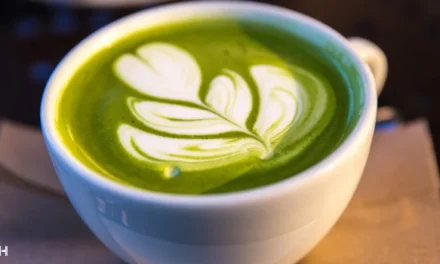Ramen is a popular Japanese noodle soup dish that has gained popularity worldwide in recent years. However, for many Muslim consumers who wish to enjoy ramen, its halal status remains unclear.
“Ramen is delicious, but I’m not sure if it’s halal to eat or not.”
The main aim of this article is to provide clarity on whether ramen can be considered halal for Muslim consumers. We will analyze the common ingredients used in ramen, look at guidelines that determine halal status according to Islamic law, and suggest ways to customize ramen to make it a halal-friendly food option.
Some key background facts about ramen:
| Fact | Description |
|---|---|
| Origins | Ramen originated in Japan, but was adapted from Chinese wheat noodles |
| Global Popularity | Ramen has become popular globally, with instant ramen sales surpassing 100 billion servings in 2020 |
| Ingredients | Main components of ramen are wheat noodles, broth, and toppings like meat and vegetables |
With ramen’s rising popularity among consumers worldwide, including in Muslim-majority countries, it’s important to understand whether it can be part of a halal diet. This article aims to offer clear guidance on the halal status of different types of ramen.
Ingredients in Ramen
Ramen consists of several main components that determine its halal status. Let’s look at some of the most common ingredients found in ramen:
Noodles
- Typically made from wheat flour
- Wheat and wheat-based ingredients are halal
Broth
- Can be made from meat, fish, vegetables etc.
- Pork and alcohol-based broths would be haram
| Broth Type | Halal Status |
|---|---|
| Chicken | Halal |
| Beef | Halal if from properly slaughtered cows |
| Pork | Haram |
| Fish/Seafood | Halal |
| Vegetable | Halal |
“The broth or soup base is really important – chicken and vegetable broths are a safer bet for halal ramen.”
Toppings & Seasonings
- Common toppings like pork (chashu), menma, and egg can be problematic
- Seasonings like soy sauce may contain alcohol
When evaluating ramen ingredients, key points for halal compliance include:
- Avoiding pork, alcohol, and other intoxicants
- Ensuring proper slaughter of meat sources
- Checking questionable ingredients like flavorings
Modifying ingredients is key to enjoying halal-friendly ramen.
Determining Halal Status
To determine if a particular ramen can be considered halal, we need to evaluate it against the guidelines provided in Islamic law.
“Checking the halal status of ramen can be tricky, but there are clear principles to follow.”
The criteria for food to be halal include:
- No pork or pork by-products
- Meat must come from animals slaughtered per Islamic guidelines
- No alcohol or intoxicants
- No blood or blood by-products
- Food not prepared using haram equipment that came in contact with haram substances
| Ingredient | Halal Status |
|---|---|
| Pork | Haram |
| Properly slaughtered beef | Halal |
| Alcohol | Haram |
| Beef broth | Halal |
| Soy sauce (alcohol-free) | Halal |
Looking at common ramen ingredients using these criteria:
- Pork is automatically haram
- Chicken and beef can be halal if slaughtered properly
- Alcohol and non-halal meat broths would make ramen haram
By analyzing the ingredients and preparation methods, we can determine if a ramen meal adheres to Islamic dietary laws.
Halal-Certified Ramen
Fortunately for Muslim ramen lovers, there are options for halal-certified ramen available in some regions.
“I’m so excited I can finally enjoy ramen that’s certified halal!”
Some examples of halal ramen brands include:
- Nissin Ramen – certified halal in Malaysia
- Samyang Ramen – select flavors certified halal in Korea, Indonesia
- Sapporo Ichiban – some products certified in USA
- Paldo Ramen – certified halal by JAKIM in Malaysia
These brands ensure their ramen is produced according to Islamic dietary guidelines. Key points:
- No haram ingredients like pork used
- Halal meat-based broths and toppings
- Production in halal-certified facilities
| Brand | Halal Certification |
|---|---|
| Nissin | JAKIM Malaysia |
| Samyang | KMF Korea, MUI Indonesia |
| Sapporo Ichiban | IFANCA USA |
When purchasing ramen, look for the relevant halal certification logo on packaging. This provides assurance that Islamic dietary regulations have been followed.
For regions without halal ramen, customizing ingredients is an option.
Customizing for Halal
If halal-certified ramen is unavailable, customers can modify and customize regular ramen to make it suitable for a halal diet.
“With some simple substitutions, I can still enjoy delicious ramen that fits my halal needs.”
Some tips for customizing ramen include:
- Use a halal broth like chicken or vegetable instead of pork
- Add your own halal proteins like chicken breast or tofu
- Avoid haram toppings like pork chashu; use chicken or beef instead
- Check flavoring packets for alcohol and skip if present
- Opt for halal-certified sauces like soy sauce if available
| Customization | Halal Alternatives |
|---|---|
| Broth | Chicken, vegetable, or halal beef broth |
| Proteins | Chicken, beef, tofu |
| Toppings | Halal chicken, beef, vegetable toppings |
With these modifications, ramen can still be an enjoyable meal while adhering to halal guidelines. Be sure to verify ingredients and preparation methods when customizing for halal.
The key is being aware of halal requirements, and choosing substitutions to align ramen with Islamic dietary regulations. This opens up more diverse halal cuisine choices.
Frequently Asked Questions: Is Ramen Halal?
What is Ramen?
Ramen is a Japanese dish that consists of Chinese-style wheat noodles served in a meat or vegetable-based broth. It is typically flavored with soy sauce or miso and can be topped with ingredients such as sliced pork, chicken, vegetables, tofu, and a boiled egg.
Is Ramen Halal?
Yes, Ramen can be halal if it is prepared according to halal dietary guidelines. It is important to ensure that the ingredients used, including the broth, meat, and sauces, are halal-certified. Some restaurants or instant ramen brands have obtained halal certification for their products.
Can Muslims eat Ramen?
Yes, Muslims can eat halal-certified Ramen that meets their dietary requirements. It is essential to check if the Ramen you are consuming is made with halal ingredients and prepared in a halal kitchen to avoid consuming non-halal substances or cross-contamination.
Are instant ramen noodles halal?
Not all instant ramen noodles are halal. However, there are halal-certified brands available in the market that produce instant ramen noodles, such as Samyang instant ramen noodles halal, which have obtained halal certification for their products.
How can I identify halal ramen noodles?
To identify halal ramen noodles, look for halal certification labels or logos on the packaging. Read the ingredients list carefully, checking for any non-halal ingredients like pork or alcohol. If unsure, you can reach out to the brand or manufacturer for clarification.
Can I make halal ramen at home?
Yes, you can make halal ramen at home by using halal-certified ingredients. Prepare a halal chicken or vegetable broth, choose halal meat or tofu for toppings, and ensure that any sauces or seasonings used are also halal-certified.
Are there vegan or vegetarian options for halal ramen?
Yes, there are vegan and vegetarian options available for halal ramen. You can use vegetable broth as a base, substitute meat with tofu or plant-based protein, and add various vegetables and spices to create a flavorful and satisfying dish.
Conclusion
In summary, determining the halal status of ramen requires analyzing its ingredients and preparation methods. While some common ramen components like pork are haram, ramen can be halal if following Islamic dietary guidelines.
“With the right knowledge and some easy customizations, enjoying halal ramen is possible for Muslim consumers.”
Key points:
- Certain ramen ingredients like pork and alcohol are automatically haram
- Halal-certified ramen is available in some regions, following Islamic regulations
- Customizing with halal broths, proteins and toppings enables a halal ramen meal
Therefore, while not all ramen is halal by default, Muslim consumers can enjoy selected ramen or customize their own by substituting ingredients for halal options. With proper understanding and preparation, ramen can be a delicious and halal addition to one’s diet.





